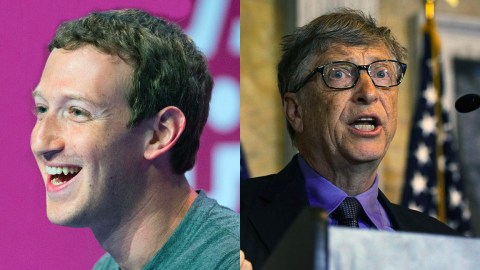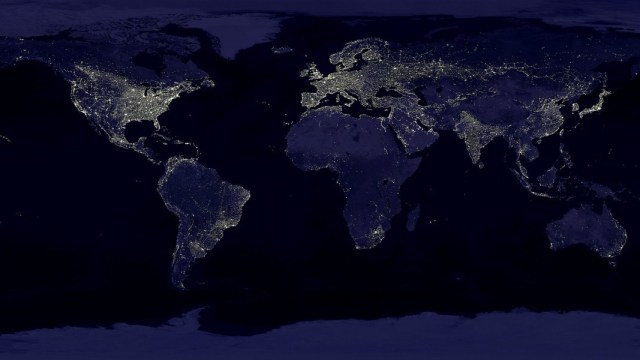Mark Zuckerberg and Bill Gates Strike Very Different Tones on Apple-FBI Fight

Two prominent tech figures — Facebook CEO Mark Zuckerberg and Microsoft co-founder Bill Gates — have finally weighed in on Apple’s current kerfuffle with the FBI. Zuckerberg and Facebook have sided with Apple and its CEO Tim Cook. Gates’ stance is much more opaque, and his attempts to strike a diplomatic tone are doing him few favors in the court of public opinion.
Zuckerberg stands with Apple, Google
In an appearance yesterday at the Mobile World Conference in Spain, Zuckerberg defended Apple’s defiance of a court order requiring it to create a backdoor access point for the U.S. government into an iPhone that had belonged to the one of the San Bernardino shooters. The Facebook CEO echoed his Apple counterpart’s insistence that the precedent set by subverting encryption would pose a major risk to privacy rights:
“[T]he FBI wants us to make a new version of the iPhone operating system, circumventing several important security features, and install it on an iPhone recovered during the investigation. In the wrong hands, this software — which does not exist today — would have the potential to unlock any iPhone in someone’s physical possession.” — Tim Cook, Apple CEO
Zuckerberg’s endorsement comes on the heels of another by Google CEO Sundar Pichai, who said last week that, even though he sympathizes with the challenges faced by intelligence agencies that fight terrorism, it’s unacceptable “[to require] companies to enable hacking of customer devices and data.”
In an industry always within eyesight of privacy watchdogs, it was important for Facebook and Google to issue robust statements of support for Apple and deflect any potential notion that they’re nothing but government lapdogs. The companies needed to speak up, and they did.
Gates puts Microsoft in hot water
The aforementioned court of public opinion is very passionate about user privacy, especially with regard to the relationships between tech companies and the government. As a result, nuance and half-hearted stances don’t go over well. Just ask Bill Gates and Microsoft.
Earlier today, the Gate denounced a Financial Times report published Monday night under the title “Bill Gates backs FBI iPhone hack request.” Gates explained to Bloomberg that the article misrepresented his beliefs. To him, this isn’t a black-and-white issue. He argued that Congress and the courts need to decide the legalities of the situation after much discussion, not in a rash reaction in the aftermath of a terrorist attack. Gates pressed the idea of striking a balance between stakeholders, though he still supports “implementing safeguards where the government shouldn’t have to be completely blind.”
Gates doesn’t come off well here because it’s not clear what he truly believes, though that may have more to do with his communication skills than his actual opinions.
Gates is trying his darndest to adopt a diplomatic tone here and that’s arguably an admirable ambition — nuance is rarely a bad thing. But as my colleague Natalie Shoemaker notes, the Apple/FBI fiasco is a dicey situation for tech companies from a PR standpoint, and Gates’ diplomacy — well-meaning or not — is getting him and Microsoft in trouble.
It doesn’t help that some traffic-hungry editor over at Financial Times apparently packaged their Gates story in a disingenuous, hot-takey manner. But that doesn’t change the words that came out of Gates’ own mouth, and the cloudy confusion he’s created in his apparent war on clarity. He wants to promote the idea that the Apple-FBI fight is not black-and-white. The court of public opinion already decided it is.
Nuance is dead, and that’s why Facebook and Google are being praised for issuing robust statements of support and Bill Gates is the latest tech boogeyman in bed with the feds. Deserved or not.
Photos: Zuckerberg – David Ramos/Getty Images; Gates – Alex Wong/Getty Images
**
Robert Montenegro is a writer and dramaturg who regularly contributes to Big Think and Crooked Scoreboard. He lives in Washington DC and is a graduate of Loyola Marymount University in Los Angeles.
Twitter: @Monteneggroll. Website: robertmontenegro.com.





